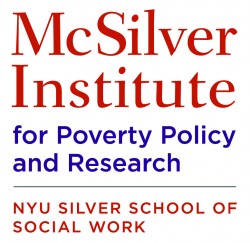In the Spotlight
Despite New York City Mayor Bill de Blasio’s recent unveiling of a $41 billion dollar plan to build and preserve 200,000 affordable housing units, the struggles associated with locating and securing affordable housing do not look like they will be diminishing any time soon. While the Mayor’s plan appears both ambitious and necessary, the current state of affordable housing is leaving many New York City residents unsure of where they will rest their heads at night.
While Social Security has managed to keep over 15 million elderly Americans out of poverty, rent costs in New York City are proving to be a pervasive challenge that social security checks alone cannot insulate the aging population from. Despite government support to keep aging adults out of poverty, an increasing number of older city residents are attempting to secure affordable housing. For elderly populations, locating affordable housing is becoming an increasingly more difficult task in a city of inflated rents and minimal space.
 The challenges of maintaining and securing affordable housing knows no boundaries of age. In fact, increasing numbers of older adults are unable to keep up with their rent and face a unique set of difficulties.
The challenges of maintaining and securing affordable housing knows no boundaries of age. In fact, increasing numbers of older adults are unable to keep up with their rent and face a unique set of difficulties.According to the New York Times, by 2030 New York will have as many residents age 65 and older as school aged children. With this boom in older residents, the already strained NYC affordable housing system will face an influx of senior renters. With this influx, the city’s affordable housing infrastructure as it stands today will not be able to support this shift in the city’s population.
Direct Service Implications
With increasing numbers of older adults being unable to afford their rents, social service agencies designed to aid this population may see an influx in clients seeking housing assistance. While a number of affordable housing units across the city have long waiting lists, direct service providers must be equipped to best serve their clients by being aware of potential services available. For up to date information on housing availability and procedures to secure housing, the New York City Department of Aging can serve as a good place to start for providers and clients.
Courtesy of McSilver Institute of Poverty Policy and Research who has kindly given SJS permission to syndicate this piece.
Disclaimer: The views and opinions expressed in the Policy News Briefs are not necessarily the views of the McSilver Institute for Poverty Policy and Research or NYU’s Silver School of Social Work. If you have comments or suggestions about this service, contact us at mcsilver@nyu.edu.
Sources:
Our authors want to hear from you! Click to leave a comment
Related Posts



